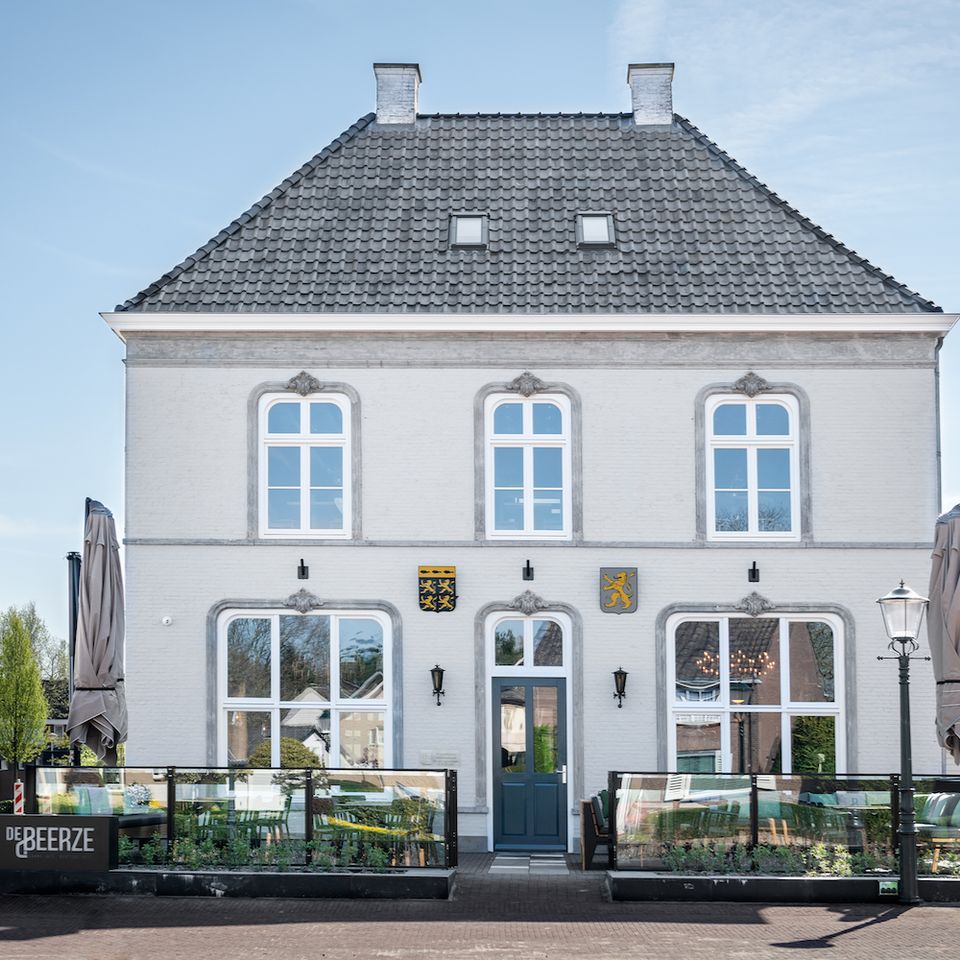Het Raadhuis of Oost- West- en Middelbeers
Contact
Doornboomstraat 22
5091 CB Middelbeers Plan your route

At the place where the triangular Doornboomplein of Middelbeers comes to a point, the town hall of Oost-, West-, en Middelbeers stood from 1865. It had a central stone staircase, two windows on either side of the entrance, and also served as a prison. This town hall faced away from the Heilig Hartplein, and two stone lions guarded that square. In 1953, this town hall was demolished, and the town hall moved to 'Huize Wilma,' an elegant house from 1879 at Doornboomstraat 22.
On the facade of this building, two shields can still be found…
At the place where the triangular Doornboomplein of Middelbeers comes to a point, the town hall of Oost-, West-, en Middelbeers stood from 1865. It had a central stone staircase, two windows on either side of the entrance, and also served as a prison. This town hall faced away from the Heilig Hartplein, and two stone lions guarded that square. In 1953, this town hall was demolished, and the town hall moved to 'Huize Wilma,' an elegant house from 1879 at Doornboomstraat 22.
On the facade of this building, two shields can still be found that refer to the time when the town hall of Oost-, West-, en Middelbeers was located here. The coat of arms of North Brabant hangs on the right side, and on the left side is the municipal coat of arms, consisting of four parts in azure blue, each with a climbing lion in gold, and in the upper part, three perch. The three perch refer to the three cores: Oost-, West-, and Middelbeers. To the right of the door, a plaque can be found commemorating the fugitives who found shelter here during World War II.
On the ground floor of the building, on the left, was the office of the first female mayor of the Netherlands: Truus Smulders-Beliën. In 1946, she became the first woman in this position, succeeding her husband Jan Smulders as the mayor of Oost-, West-, en Middelbeers. Jan Smulders had been the mayor of De Beerzen since 1927 and died in captivity in Germany in April 1945. He refused, as the acting mayor of Vessem, Knegsel, and Wintelre, to disclose the names of laborers. In the summer of 1944, he was arrested and taken to Camp Vught. From there, he was transported to the camps Sachsenhausen and Buchenwald. He died in 1945. De Beerzen had already been liberated for 7 months at that time.
Until her death in 1966, Truus Smulders-Beliën, also known as 'Ons Mevrouw' among the Beerzen residents, remained the mayor of Oost-, West-, en Middelbeers. Since 1997, Oost-, West-, en Middelbeers have been part of the municipality of Oirschot. In 2010, the town hall was sold. After extensive renovations, it has been in use as Grand Café and Boutique Hotel De Beerze since 2020. Many references to the former occupants can still be found in the building.